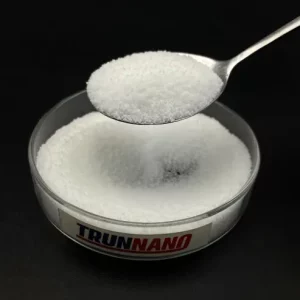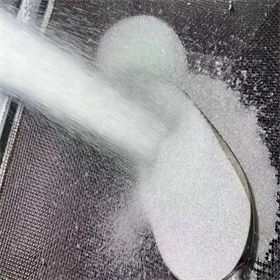Researchers have rejected a wild idea to make use of little, hollow glass beads to stop sea ice loss, discovering that a layer of microspheres would speed up ice thaw instead of slowing it.

Satellite data reveals sea ice in the Arctic is “melting at a frightening price.” Simulations recommend it could totally enter the Arctic summer seasons by 2050. However, the brand-new research advances a detailed set of calculations to show why small glass grains are not the response.
Webster joined College of Washington atmospheric scientist Stephen Warren to examine the cases of the 2018 modeling research study, which concluded that a layer of 65 micrometer-wide glass spheres spread out about five beads deep might enhance the reflectivity and density of Arctic sea ice.
Where the 2018 study considered thin sea ice with little snow cover, the duo identified adjustments in solar energy across eight sea ice issues found in the Arctic at various times of the year. They designed the very same density and type of hollow glass microspheres.
Unlike the previous research, they considered seasonal snow and meltwater insurance coverage, in addition to sunshine mixed-up degrees and in the upper atmosphere, cloud cover, and how the beads engage with the Sun.
Come spring, most Arctic sea ice is hidden in bright-white, deep snow, which is very reflective, so including glass grains would actually lower sea ice surface areas currently year, causing a lot more considerable warming and ice loss.
Although the hollow glass microspheres reveal a substantial fraction of Sunlight, a slim layer of grains still soaks up 10 percent of energy from the Sunlight’s rays– sufficient to increase warming in the Arctic.
If non-absorbing glass beads could be developed, they could cool off the Arctic climate– yet it would certainly take 360 million tons of hollow glass grains to lead sea ice yearly, Webster and Warren located. Even if they operated in principle, manufacturing and carrying those grains is bound to gush even more carbon discharges into the atmosphere.
In other words, this is different from the kind of activity on climate change that we require; lowering carbon emissions is what counts. And if we’re discussing recovering settings, it is better to focus on recovering woodlands, marshes, peatlands, and seaweed ecosystems that can absorb considerable amounts of carbon dioxide if done right.
In the years we have actually spent dilly-dallying about environment modification, we’ve already lost over half of the Arctic’s long-term ice.
Fortunately, we currently recognize just how to do that, and the outcomes– less carbon discharges– are a much more secure wager than gambling on exceptionally risky and mainly untested geoengineering methods.
Making changes to heat-absorbing developed atmospheres by bleaching roofs and greening cities is an excellent area to start.
Hollow Glass Grains have a series of outstanding residential properties, such as lightweight, colossal quantity, reduced thermal conductivity, high compressive toughness, excellent dispersibility, excellent flowability, and security. They additionally have reduced oil absorption, insulation, self-lubricating, sound insulation, nonwater absorption, fire resistance, rust resistance, radiation defense, and non-toxic residential properties. Therefore, the application fields of Hollow Glass Beads are incredibly considerable, as follows:
Building materials
Hollow Glass Beads are used to manufacture lightweight, shielded, and soundproof insulation materials, such as lightweight hollow glass microbead panels.
Plastic and rubber
Hollow Glass Beads are used as fillers to replace typical solid fillers in the production of numerous rubber items.
Petrochemical market
Hollow Glass Grains are utilized to manufacture petroleum stimulants and ingredients.
Deep Sea and aerospace
Hollow glass beads are utilized to make water-resistant sealing and insulation materials.

Metallurgy
Hollow Glass Beads are used to manufacture refractory products and high-temperature ceramic products.
Hollow Glass Sphere Hollow Glass Beads supplier
Luoyang Tongrun Nano Technology Co. Ltd. (TRUNNANO) Luoyang City, Henan Province, China, is a reliable and high-quality global chemical material supplier and manufacturer. It has more than 12 years of experience providing ultra-high quality chemicals and nanotechnology materials, including Glass microsphere, nitride powder, sulfide powder, and 3D printing powder. If you are looking for high-quality and cost-effective Hollow Glass Sphere Hollow Glass Beads, you are welcome to contact us or inquire any time.




